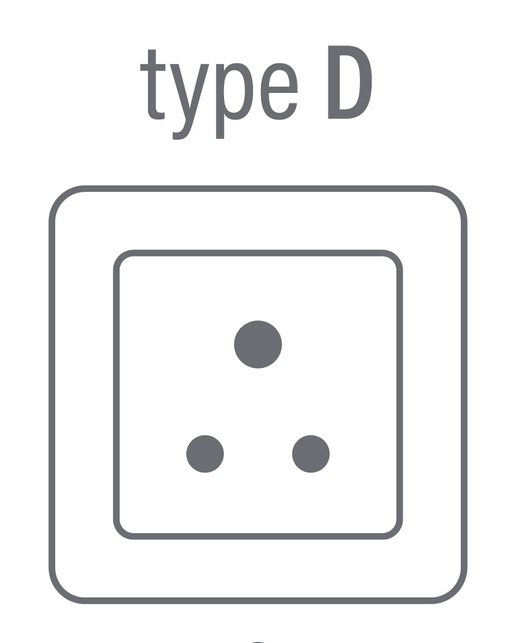Kenya
![]()
TRAVEL INFORMATION QUICK LINKS
Navigate your travels seamlessly with vital information on passport and visa requirements, plug types, currency exchange, and other essential details to make your journey hassle-free.
Stay informed and prepared for your journey with these essential health and safety tips to ensure a smooth and worry-free travel experience.
A handy guide offering suggested tipping amounts to enhance your travel experiences with ease and respect for local customs.
Prepare for your adventure with insights into the weather of your destination, offering valuable information to help you pack and plan accordingly for a comfortable and enjoyable journey.

ESSENTIAL TRAVEL INFORMATION
PASSPORT REQUIREMENTS
- A passport with at least six month validity remaining from date of return is required for entry into Kenya.
- Two blank pages are required for entry.
VISA REQUIREMENTS
- United States and Canadian passport holders require an Electronic Travel Authority (eTA) for entry into Kenya. The fee is $34 USD for a single journey visa. Visas are usually issued with six months validity from the date of issue.
- Application for the Electronic Travel Authority (eTA) must be made online at http://evisa.go.ke/evisa.html. The eTA takes up to three business days to process, but in some cases may take longer. Note: At this time, eTAs may only be purchased using a debit or pre-paid card.
- Visas are not required for direct transit passengers, i.e. passengers not leaving the airport.
- Note: A single entry Kenyan eTA allows re-entry to Kenya once from Uganda, Tanzania, Burundi, and Rwanda. However, this is honored inconsistently by some immigration officials.
- Read more at: US Department of State Profile for Kenya
LANGUAGE
- English and Swahili are the official languages in Kenya.
CURRENCY
- The official currency is the Kenya Shilling. The written abbreviation is either KSh or using /= after the amount (i.e. 500/=).
- Visa and MasterCard are accepted in major shops, restaurants, and hotels.
- USD is accepted at most safari properties, but keep some local currency on hand for purchases from small vendors.
- Ensure that all USD brought for either use or exchange in Kenya is new, clean, and unmarked.
- Destruction of Kenyan currency is technically illegal and may result in an arrest and fine.
TIME ZONE:
GMT +3VOLTAGE:
240V/50HzPLUG TYPE:
Kenya uses Type D and Type G plugs.

IMPORT & EXPORT RESTRICTIONS
- It is illegal to export elephant ivory, wildlife skins, and sea turtle products.
- The export of gold, diamonds, or game trophies requires a permit from the appropriate authorized government department.
- It may be illegal to export game meat in any form to your home country.
- For detailed import and export regulations, please consult the IATA Travel Centre.

TRAVELERS’ HEALTH & SAFETY
REQUIRED IMMUNIZATIONS
- Kenya requires yellow fever vaccination for all travelers over 1 year of age who are entering from a destination where yellow fever is endemic.
- Your country of origin and other African countries like South Africa may also deny re-entry without the vaccination after having visited Kenya, since portions of the country technically fall into the yellow fever risk zone.
- For travelers planning to enter other countries in East Africa, it is recommended to obtain a yellow fever vaccination certificate in order to streamline the immigration process.
- Please visit the CDC.gov website for recommended immunizations to visit Kenya.
OTHER SAFETY NOTES
- Avoid stagnant or contaminated water.
- Malaria risk exists in all areas below 8,202 feet, including Nairobi. Discuss appropriate malaria prophylaxis with a travel medicine specialist prior to travel.
- Polio has been identified in Kenya within the past 12 months.
- Tsetse flies and some insect-borne diseases, including African sleeping sickness, can be found in the area. Take appropriate precautions against insect bites such as using insect repellent and wearing long sleeves and pants.
- There is a high incidence of HIV in Kenya.
- Those with heart conditions should be aware that they might be traveling at high elevations, above 7,000 feet, depending on their itinerary. Please consult your doctor to determine if high altitude travel is safe for you. Nairobi is situated at about 6,000 feet.
- Terrorism is an increased risk in Kenya. Enroll in STEP to get the latest security updates while you travel and to help embassy staff contact you in an emergency.
- Street crime in Nairobi may target foreign citizens. Take appropriate precautions by hiding valuables and only make use of transportation arranged by Ker & Downey or your hotel.
LOCAL LAWS AND CULTURAL CONSIDERATIONS
- Accessibility: The law in Kenya prohibits discrimination against individuals with disabilities. However, this is not enforced evenly throughout the country, and physical accessibility remains an issue.
- Ivory: It is illegal to possess ivory, as well as other protected animal parts including from rhino and pangolin.
- Laundry: Some safari properties will not be able to launder underwear due to cultural differences. Pack extra.
- LGBTQIA+: Kenya’s criminal code outlaws “carnal knowledge against the order of nature”, which is frequently interpreted to apply to consensual same-sex relationships, and specifies a maximum penalty of 14 years in prison. A separate statute applies only to men, with a maximum penalty of 21 years in prison.
- Photography: As with travel throughout Africa, it is imperative that GPS data NEVER be recorded for wildlife photography, especially highly poached species such as rhino and pangolin. It is also illegal to photograph many government buildings, as well as airports.
- Plastic Bags: Kenya placed a ban on single-use plastic bags for environmental reasons. If plastic bags are found in your luggage at the airport, they will be seized, and you may face a fine.
- Prescription drugs: Please contact the embassy for specific questions about your prescription medications. DO NOT attempt to bring cannabis-derived products into or out of Kenya.
- Tap water: Tap water may not be potable in all regions. Do not drink tap water without confirming it is safe to drink.

GRATUITIES
- Airport assistance: USD $5 per service
- Transfers: USD $5 per transfer (all guests)
- Hotel porter: USD $2 per bag
- Lodge/camp staff: USD $10-15 per day
- Game/tour guide: USD $10-15 per day
- Game tracker: USD $5-10 per day
- Private driver/guide: USD $15 per day
- Lodge butler: USD $15 per day
- Spa therapist: USD $5 per treatment

WEATHER
- Hot and humid climate throughout the year.
- Rainy seasons typically occur from April to June and October to December.
- Nairobi, the capital, has a mild climate due to its elevation. Two rainy seasons: Long rains from March to May and short rains from October to December. Dry seasons from January to February and June to September.
- Cooler temperatures, especially at higher elevations.
- Rainfall can occur throughout the year.
- Hot and dry climate, with low and erratic rainfall.
- Drier conditions persist for much of the year.